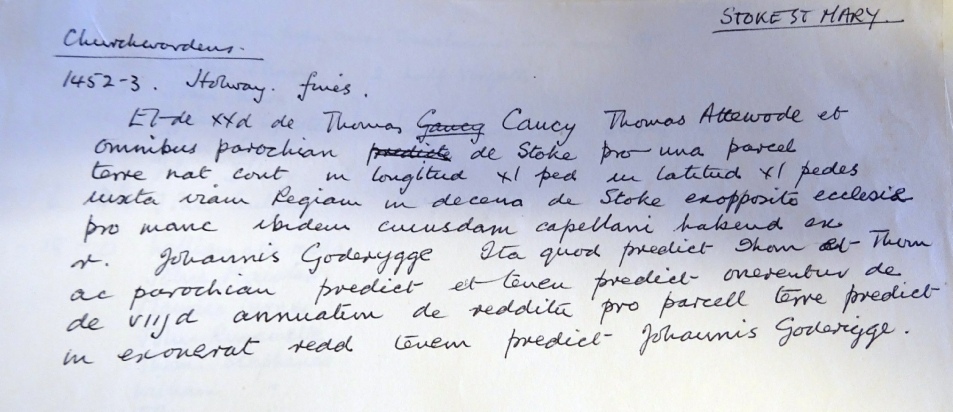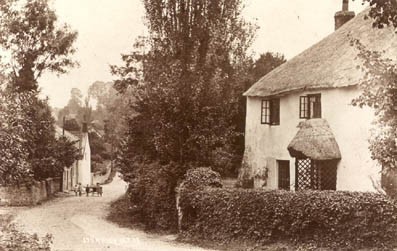

STOKE ST MARY HISTORICAL RECORDS
THE POOR HOUSE
The Poor House had provided shelter for those who could’nt look after themselves for centuries. There are records in the Somerset Archives showing the Overseer of the Poor’s outgoings meticulously set out.
In 1802
Mary Dinham for her bastard child
John Truby in distress
John Truby and his wife in distress
And a few lines later
John Jacobs – his coffin 9s
Bell and grave 2s 6d
Laying out 1s
From then on Betty Jacobs was a charge on the parish, receiving money every month on which to survive. She finally died in 1808 and the parish paid for her funeral as well. The cost of a coffin could come to 8s [paid to Richard Cannicot the village carpenter in 1714].
Another pauper in the village, George Tatterdell was paid a total of £1-
Attending in sickness
Making his grave
Ringing the bell
His Shroud
Beer at his funeral – 4/0d
The Parish provided clothes for the poor, a gown for Sarah Thresher, a shift for Sarah Truby, a jacket for the Ashcott bastard child and an apron for Hannah Stodgell.
The bastard children and orphans were looked after by the Parish [unless they could offload them onto another Parish] and would then be apprenticed out. Michael Keevil was provided with a hat and stockings before being apprenticed to John Proctor in 1715.
A bastard child was a drain on the Parish so every effort was made to find the father, and order him to make payment for the child.
In 1714 Mary Tatterhall had a bastard child and the Parish paid for its keep. Somehow she managed to leave the child in the Parish, and the Parish went to great lengths [and cost] to have her and the child’s father arrested. The arranged a warrant, a Mitimus, for their arrest, paid for two men, 3 days, in seeking and bring home Mary and the putative father, John Williams, and the cost of attending on her at Taunton Quarter Sessions.
This carried on through the 18th and 19th century until the old methods were now no longer able to cope with that rising population and poverty.
With the Poor Law Amendment Act in 1834 things changed. In 1837 the Taunton Union Workhouse was built and it took responsibility for the “care” of those who had no work

In 1453 the Church wardens Thomas Coucy, Thomas Attewode and all the parishioners of Stoke bought a piece of land opposite the Church from John Goderigge. For this they had to pay a fine to the Bishop of Winchester. This sale is recorded in the Winchester Pipe Rolls.
THE POOR HOUSE
This building became the Poor House which was used by the Parish for various purposes.
The Curate lived there sometimes, it was used as a Beer House, the clergy earned extra money producing beer and cider, it was used to house the poor of the village and finally became the Police House.
Sadly it was demolished because it would have been too expensive to repair it in an age when modernisation was all the rage and the past was not looked upon favourably.
